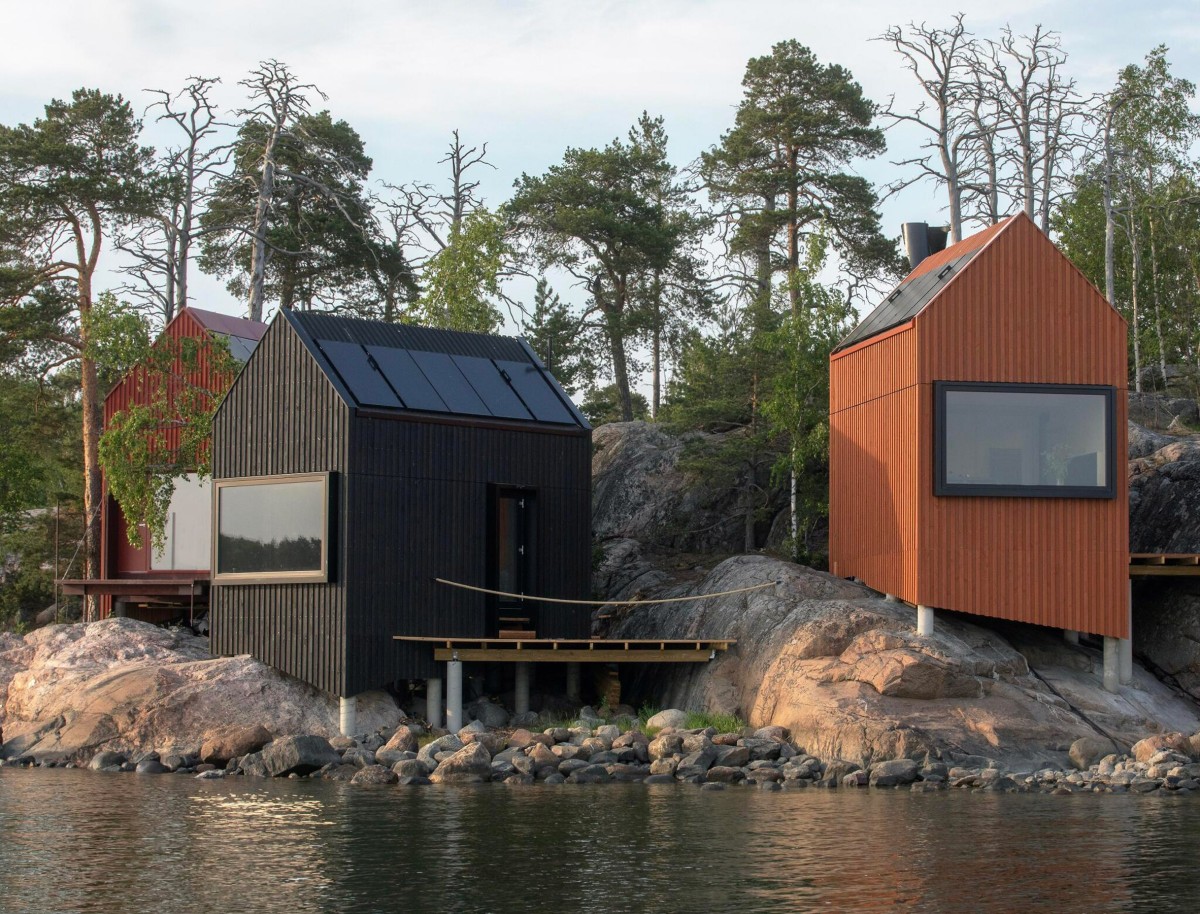
Today we're discovering a different way of living in cabins that represent a retreat and a connection to nature, especially in remote and hard-to-reach locations. They offer an alternative to urban chaos and a way to live in direct contact with the landscape. Structures located in inaccessible areas provide not only the opportunity to enjoy all of this but also the chance to live self-sufficiently.
To this end, many architects have started exploring innovative solutions to ensure the autonomy of these spaces, without relying on public infrastructure or traditional services. One example is this series of isolated cabins in Helsinki, Finland, known as the Majamaja Off-Grid Village.
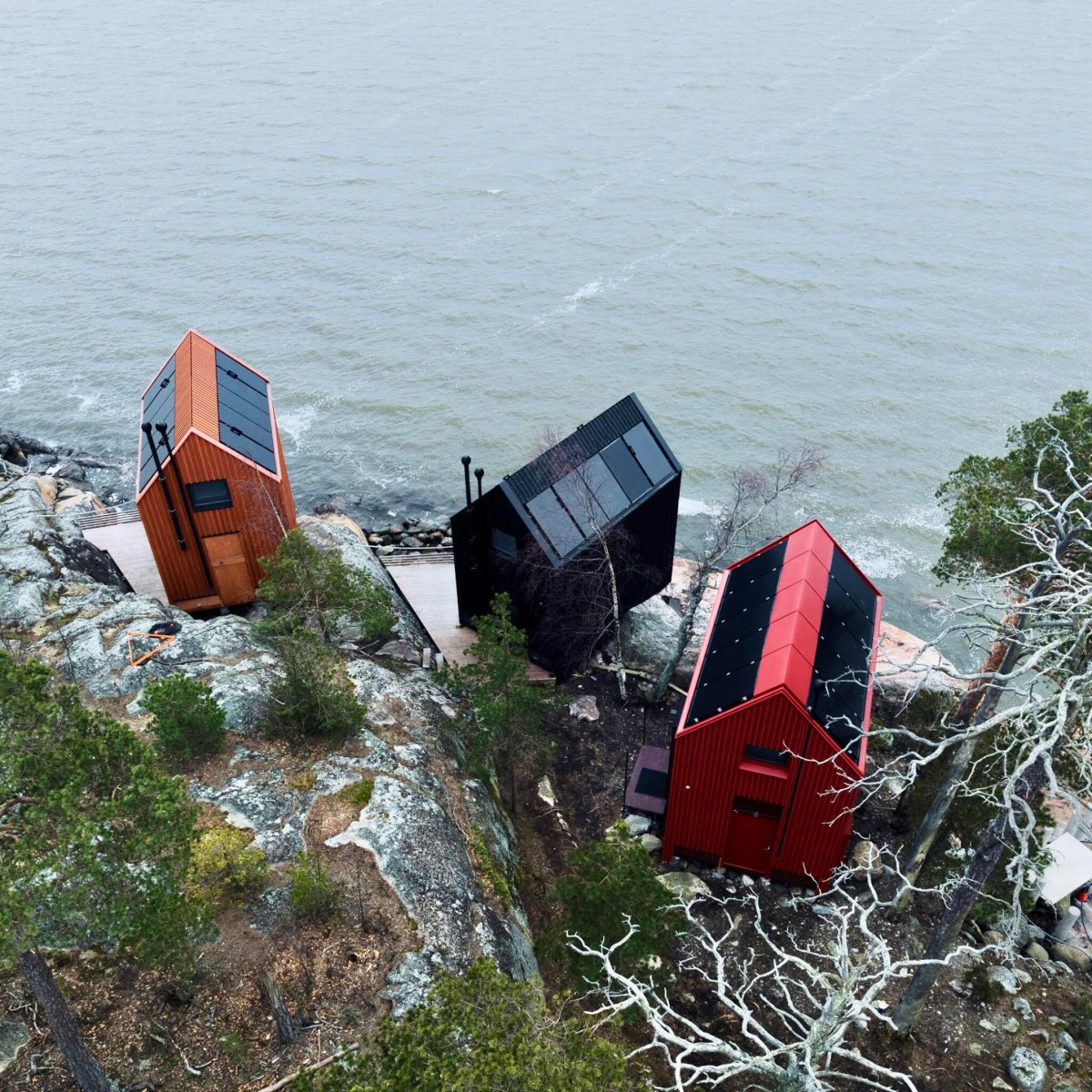
Refuges for isolation and self-sufficient living
The Paris-based architecture firm Littow Architectes has designed a set of bungalows in the Helsinki archipelago, Finland, known as the Majamaja Off-Grid Village. This project is located in a rocky area, close to the water, in a region without conventional infrastructure or public services. The design of these cabins was conceived with the idea of creating an isolated, fully self-sufficient retreat.
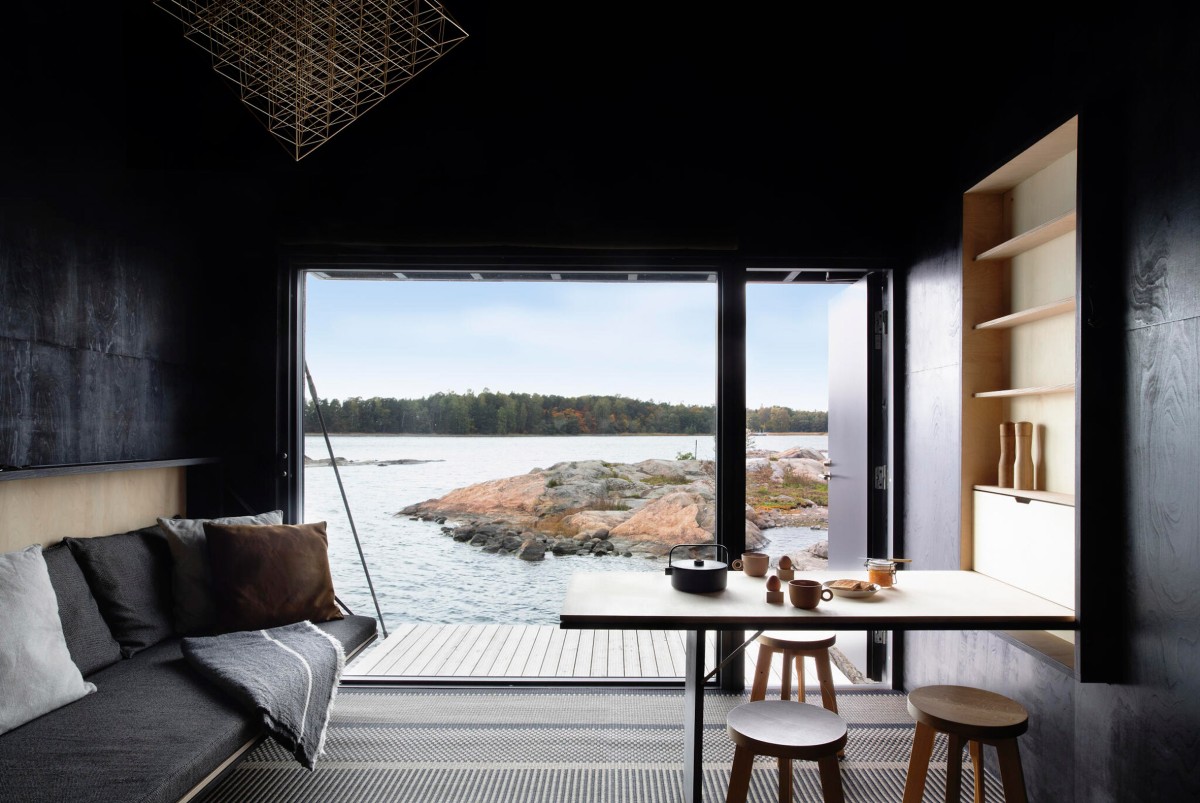
The cabins, which replace the previous structures in the area, are designed to operate entirely off the grid, allowing them to provide a living experience that is more connected to the natural environment and less reliant on conventional infrastructure.
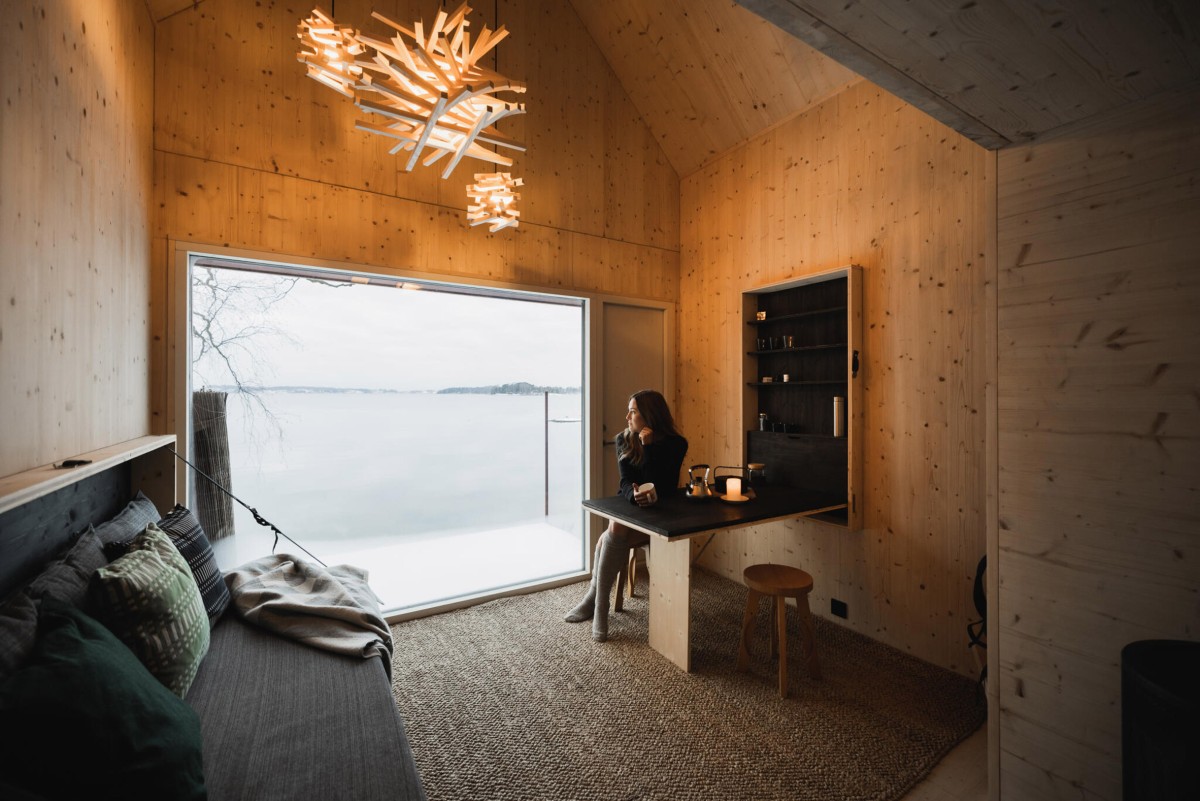
The idea was developed by Littow Architectes and the Finnish brand Majamaja, specialising in solutions for remote living. Thanks to this collaboration, it was possible to create a type of prefabricated cabin that can be assembled on-site without the need for heavy machinery.
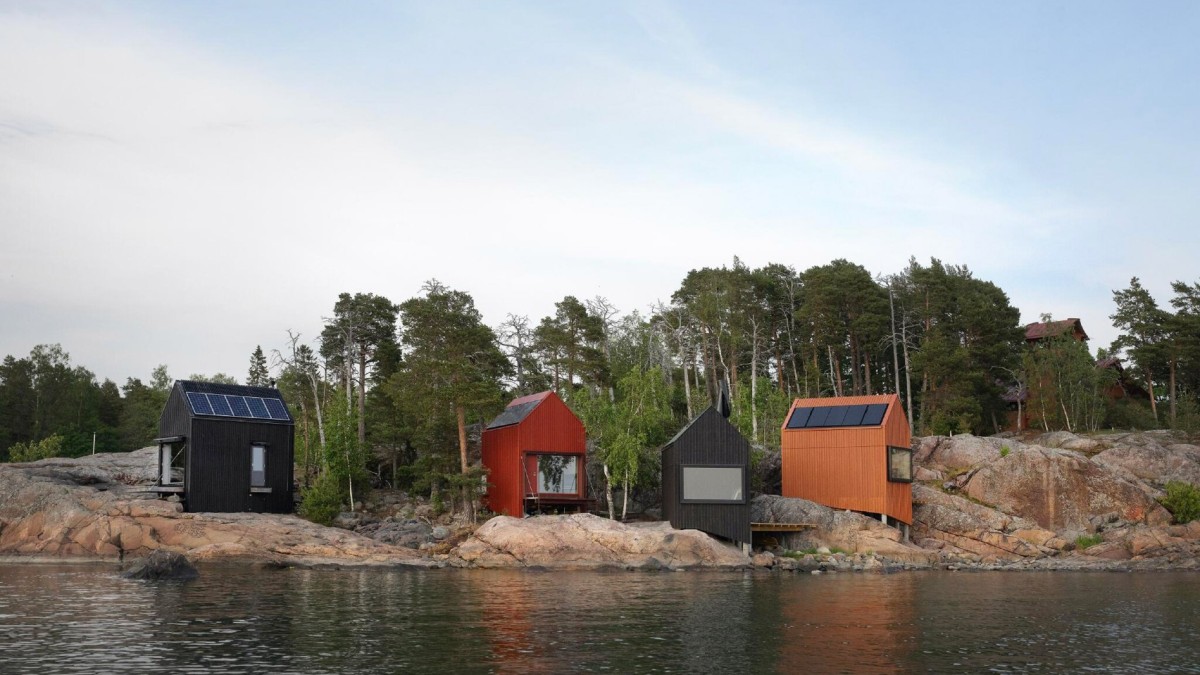
The houses are constructed using prefabricated wooden structures that are easy to assemble, with cellulose wool insulation. In addition to providing thermal efficiency, these "structures are breathable and moisture-resistant, without an intermediate plastic film," explains the architecture studio.

Each cabin is equipped with an "all-in-one technology module" that autonomously manages all utility systems. The system collects and purifies rainwater and seawater for reuse, while also recycling greywater. Each retreat features its own composting toilet, removing the need for a sewage connection, and also stores solar and wind energy.
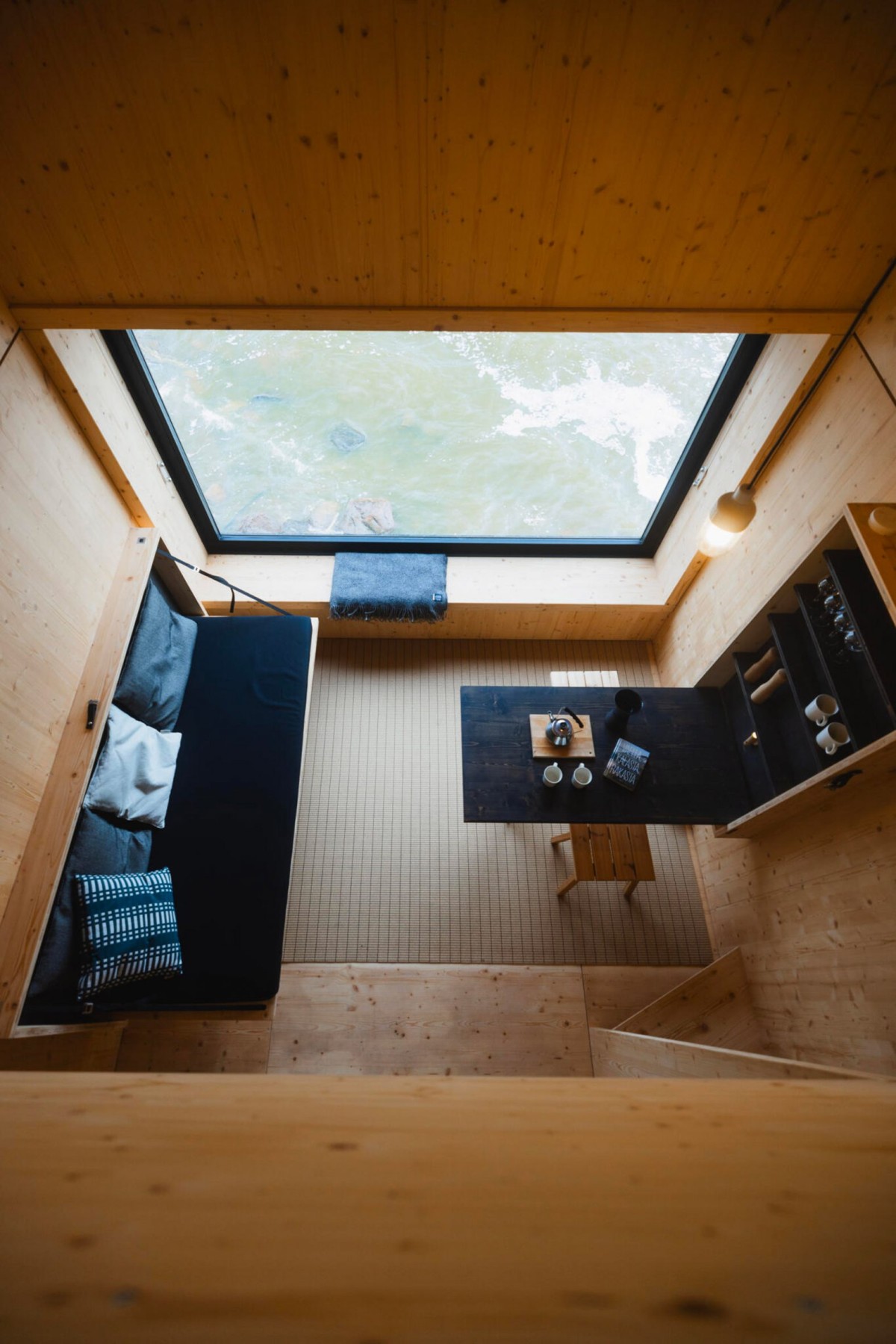
Everything in small spaces
The Majamaja Off-Grid Village is deeply committed to sustainability and environmental respect, achieving an 80% reduction in environmental impact. According to the studio, "Majamaja is dedicated to the sustainable development of remote areas without infrastructure, minimising the environmental damage typically associated with pre-construction works, such as connecting to public utilities or building roads."
Inside each cabin, the interior design is carefully planned to make the most of the small living space. Most of the furniture is foldable or multifunctional, providing greater flexibility and making use of every square metre. "Adapting construction technology to small spaces presents unique challenges, distinct from those of conventional building," the studio emphasised.
The design and execution of each element require exceptional precision to ensure everything fits perfectly with minimal installation work. These cabins represent a statement of principles, as described by the studio: they are "a humble manifesto against skyscrapers and mega-constructions."